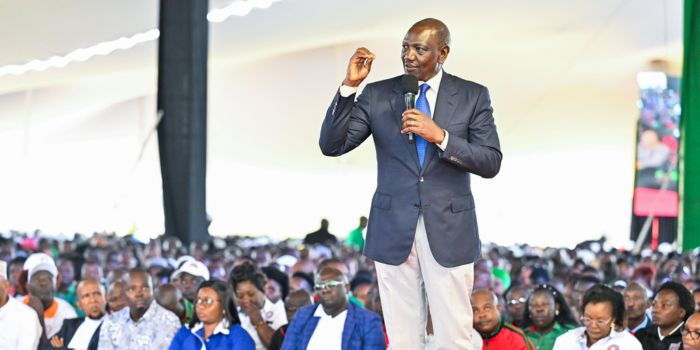
The Communications Authority of Kenya (CA) has come down hard on Yahweh Media Services—less than 24 hours after an explosive exposé aired on national television exposing gospel broadcasters secretly pushing gambling content.
The watchdog has slammed Yahweh Media Services with a fine of Ksh500,000, alongside eight other stations, following damning revelations of continued promotion of illegal betting products, despite a clear ban.
Late Monday evening, the CA issued a fiery statement confirming what many feared: media houses meant to spread hope and spirituality have been fueling a dangerous gambling underworld, preying on the trust of Kenyans.
According to the Authority, a total of 33 broadcasters were first issued violation notices on March 13, 2025, for airing unlicensed gambling commercials. A sweeping industry-wide directive followed on April 23, warning all media players to stop immediately.
But despite repeated warnings, a review conducted in mid-May revealed a shocking disregard of the law, with certain stations blatantly continuing to air gambling content. The CA described this as a “clear violation” of sector regulations.
Broadcasters now have just 12 hours to clean up their act or face license revocation.
“In accordance with Section 83A of the Kenya Information and Communications Act, 1998,” the CA warned, “non-compliant broadcasters face a Ksh500,000 fine and possible license cancellation if they do not halt all gambling-related promotions immediately.”

This unprecedented crackdown follows a chilling investigation by NTV titled “Sacred Swindle: Inside the Gospel of Greed on Kenya’s Airwaves.” The documentary pulled back the curtain on how some so-called religious media houses have been covertly promoting betting schemes disguised as divine opportunities.
One whistleblower pastor admitted their station rakes in up to Ksh700,000 daily, exploiting desperate viewers who believe they’re sowing seeds for miracles—but are actually funding lottery-style games.
The exposé painted a grim picture of manipulation cloaked in spirituality. It accused certain televangelists of turning faith into a money-minting machine, misleading vulnerable Kenyans with false promises of blessings, breakthrough, and divine fortune in exchange for donations or entry into gambling “miracles.”
Public outrage is mounting, with calls for urgent reforms to protect viewers, particularly the poor and religiously devoted, from this growing wave of spiritual exploitation.
As the dust settles, one thing is clear: Kenya’s gospel airwaves are under fire, and the war on media deception has just begun.






